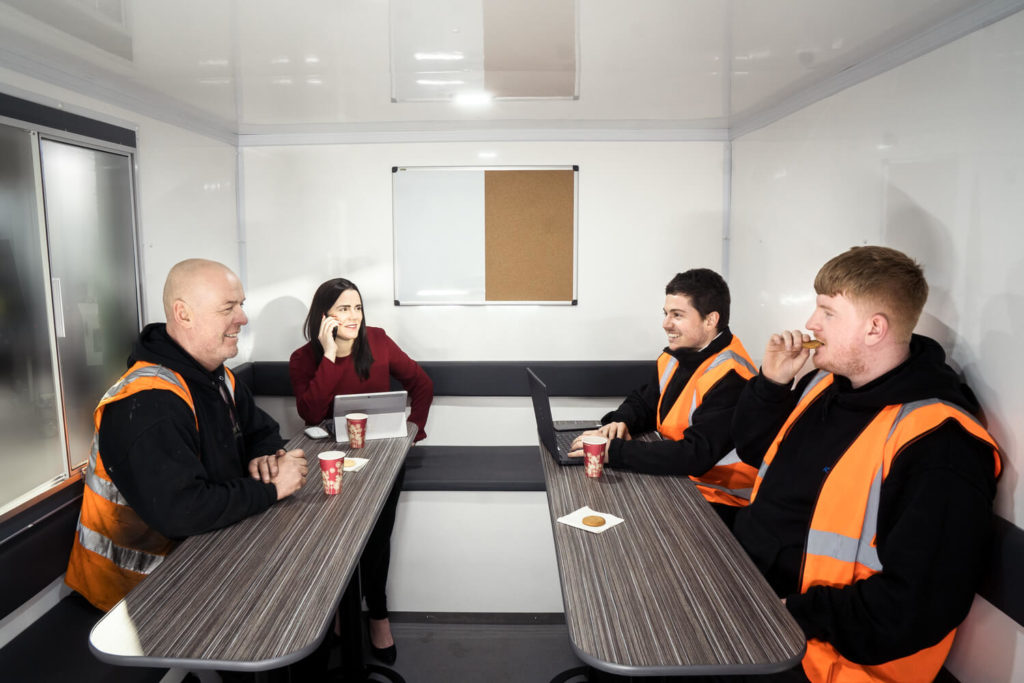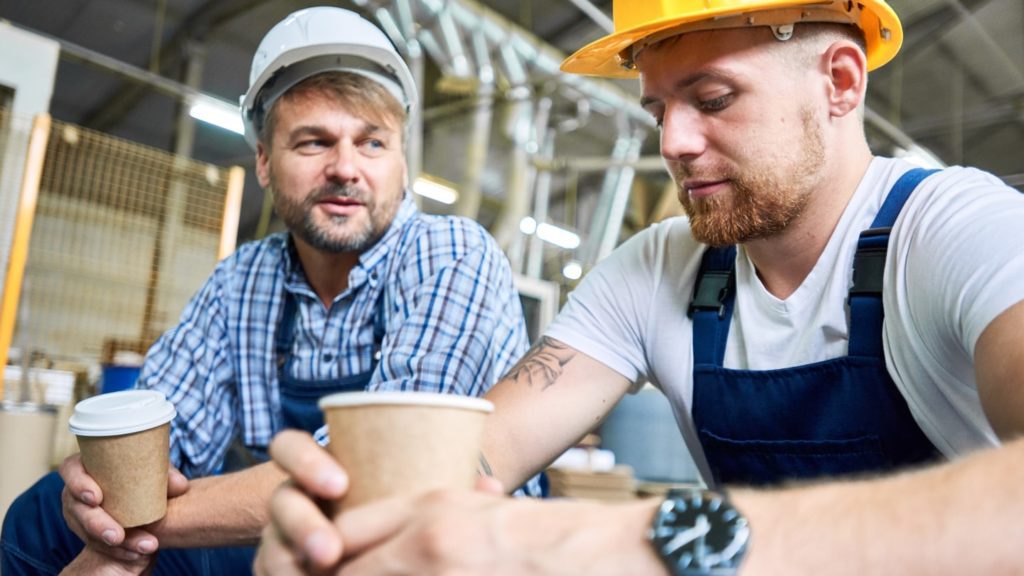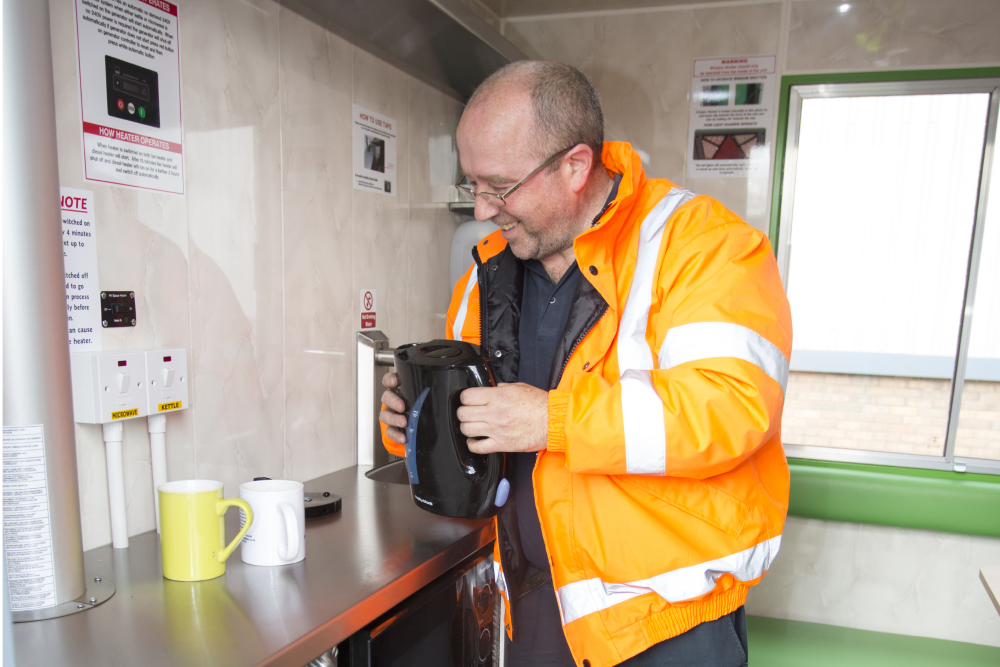Why Taking a Break Can Be the Best Thing For Employee Productivity
Blog-August 15, 2022
64% of construction workers want their employers to do more to support their mental health. But beyond simply hiring a mobile welfare unit, how can contractors ensure their people remain happy, healthy and productive?
A huge body of research suggests a simple answer: let them take proper breaks. From improved concentration and decision making to higher levels of wellbeing and happiness, regular rest on the job is essential.
The problem is, most leaders don’t know how to encourage break taking – and many see breaks as harmful to productivity.
In this article, we bust that myth, exploring why breaks matter – and how Welfare Hire’s mobile welfare units encourage their workers to take them.

THE POWER OF BREAKS
When a person focuses on a single task for a prolonged period, their capacity to pay attention quickly depletes¹. They are more likely to make mistakes or bad decisions, and are generally less productive over an extended timeframe.
Breaks allow an individual to “reset”, regaining their focus and segmenting their day into more manageable chunks. This has been found to improve concentration², reduce stress³ and increase engagement⁴. The net result is to actually improve productivity, especially when considered over a period of multiple days or weeks.
Perhaps most strikingly, regular breaks actually change the way people see their jobs⁵. They are likely to see their role more positively when they are allowed to take regular breaks in a welfare van or unit, leading them to feel better about what they do and find more meaning in their work. This can be a profound shift, helping create a better on-site environment, improve retention and build a positive workplace culture.

Getting the balance right
While breaks are important, they can also become counterproductive. One study pitches the maximum as 12%. Taking breaks that amount to more than this tends to have a negative effect on wellbeing and productivity⁶ – probably because inertia kicks in, and workers simply want to stay relaxing in the mobile welfare unit.
This has led research to the concept of “microbreaks”: brief activities that break up the monotony of the day. This could be anything from a short chat with a coworker to making a coffee. The point is that the “microbreak” is separate from work – and something the person actively enjoys doing.
Leaders that enable workers to take this sort of “microbreak” will benefit immeasurably – but how can they do that?

How Welfare Hire helps
At Welfare Hire, we include a welcome pack with every mobile welfare unit. It consists of basic daily amenities, like coffee cups, tea bags, and a delicious range of biscuits. But the effect is surprisingly powerful.
These amenities make for perfect “microbreaks” inside the welfare van or unit, and help your employees habituate healthy breaks. Simply making a cup of tea, eating a biscuit, or sitting for five minutes is all most people need to reset and refocus. And along with the kitchen facilities and a break-out room our portable welfare units provide, Welfare Hire’s welcome packs ensure you have everything needed to facilitate those breaks.
2.https://www.sciencedirect.com/science/article/abs/pii/S0272494415000328
3.https://www.ncbi.nlm.nih.gov/pubmed/20835716
4.https://www.sciencedirect.com/science/article/pii/S2351978915005223 5.https://psycnet.apa.org/record/2018-12793-001 6.https://papers.ssrn.com/sol3/papers.cfm?abstract_id=1947706